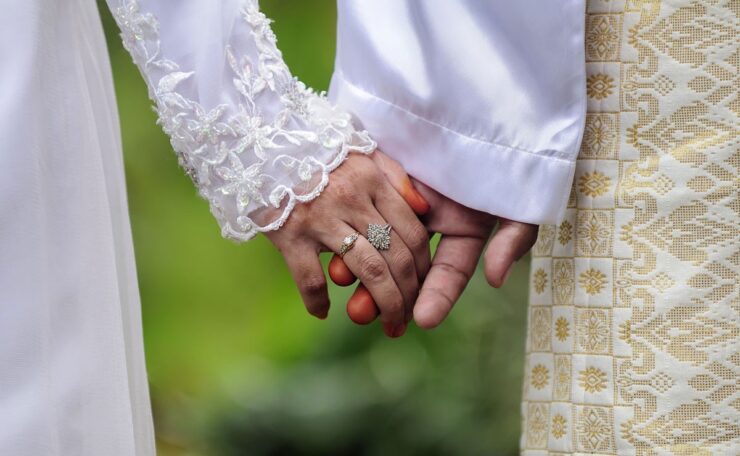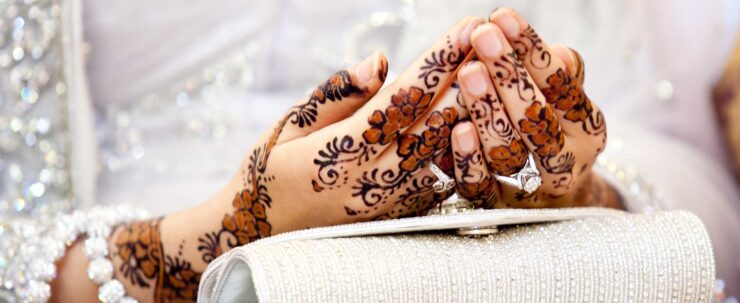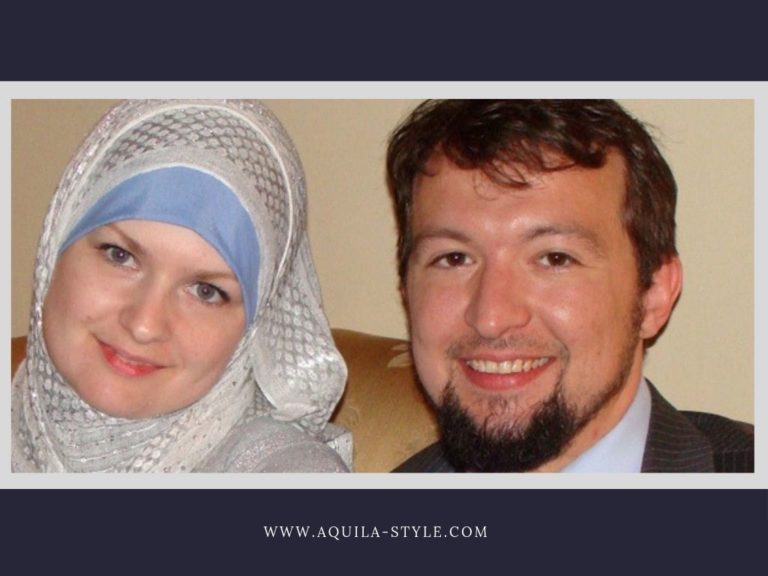Theresa Corbin shares how a modest budget for her nikah and walima resulted in a special, personal and memorable ceremony.
There are so countless wedding traditions around the world. But one thing is for sure: most weddings involve money and lots of it. For the average young person, money is a major obstacle to getting married, especially when you cannot afford to throw a huge wedding that is often expected, or if you don’t wish to burden your parents with astronomical expenses.
When I got engaged, I was an orphan, a new convert to Islam and a college student. I had little to contribute financially to a wedding. My groom was also a convert who had just enough to pay the dowry and support a wife, but an extravagant wedding was not in the cards. We were on our own, or so we thought.
When all was said and done, our nikah and walimah cost us only $5.

The $3 nikah
Our nikah, or solemnization, was a very impromptu affair. My older brother met my husband-to-be and gave his approval – he liked his car and they shared a few laughs at lunch. Then it was almost time for maghrib prayer. In the presence of the imam at the mosque and a few brothers – there were just enough people to bear witness – we sat down and drew up our marriage contract. As I lived two hours from where my husband lived, it cost me a few dollars in petrol to drive there. The paper, ink and petrol purchased for the nikah cost me only $3. But the biggest expense was yet to come: the walimah, or reception.

The $2 walimah
I was fortunate to be part of an amazing community in my new city. My new sisters, some of whom I had only met briefly at the mosque, or had never met at this point, decided to throw us a walimah and got together to organize a potluck dinner at the mosque. The feast and venue cost us nothing, and we were able to follow the tradition of the Prophet (peace be upon him) in his marriage to Safiyyah bint Huyayy.[i] “The Prophet of Allah set her free and married her. […] and the following morning he was a bridegroom. He said: ‘Whoever has anything, let him bring it.’ He spread out a leather cloth and men came with cottage cheese, dates, and ghee, and they made hais, and that was the walimah (wedding feast) of the Messenger of Allah.”
Knowing that I didn’t have any suitable clothing options, my good friend asked me if she could provide the wedding dress for my walimah. I happily accepted her offer, and she shipped me two amazingly ornate Asian gowns to pick from. If you are on a tight budget, it’s a good idea to select an affordable dress and ask your friends – who would have given you a wedding present anyway – to chip in to buy the dress as a gift.
Most weddings call for an opulent cake that comes with a hefty price. I have always wondered why the cost of basic ingredients such as flour, eggs and sugar can be so exorbitant when they’re used to make a wedding cake. As much as I love cake, I wasn’t prepared to take out a loan just to have a tower of tiered sugar at my walimah. I was even willing to go without a cake, but my husband’s good friend and his wife offered generously to buy a beautiful cake.

But what would a wedding be if a girl didn’t get all dolled up? This was a must for me. Knowing how expensive a bridal makeover can be, I decided to do my own makeup. I got some tips from a friend who was a makeup artist and bought a new shade of lipstick on sale for just $2. This brought my walimah expenditure to a grand total of $2.
It is not impossible to have a low-cost wedding, whatever one’s reasons may be (and there are many good ones). Unlike the more opulent variety, low-cost weddings normally involve less fuss, waste and debt. Much like other major life decisions, the budget (and style) of weddings is often a very personal decision taken by the bride and groom. Perhaps the most important factor is to make it a memorable event that sets us on the path of a lifelong commitment to one another.
[i] Narrated by Anas, in Sunan an-Nasa’i, available here.
